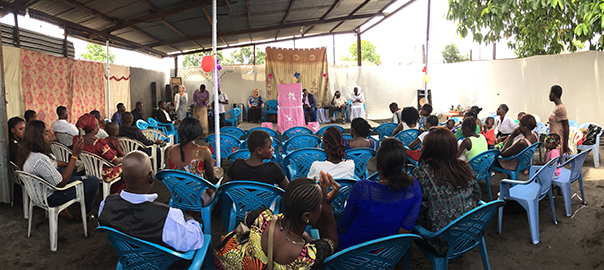I married a PK. That’s right, “pastor’s kids” get their own abbreviation, which they wear like a medal of honor for trials endured.
Growing up, PKs know that if they mess up, get in trouble, or even have a heartfelt moment with their mom or dad, the whole church will hear about it, because sooner or later it will become a sermon illustration on Sunday morning.
They are also expected to participate in Every. Single. Church. Event. When my husband was a teenager, he was forced to stand in front of the church and sing “Thistlehair the Christmas Bear” during a Christmas program. It’s a wonder he doesn’t need ongoing therapy.
But adolescent humiliation aside, here’s a glimpse of what pastors and their families often experience…
My husband’s family struggled to feed and clothe five growing children on a pastor’s salary. While a few megachurch pastors are taking home bank, the average pastor’s salary in the USA is only about $40,000. So…not that much. When my hubby and I were newly married, we found ourselves with a revolting fish dish for dinner one night (not my fault). I promptly declared I couldn’t eat it and turned to the fridge to find something else. By the time I turned around, hubs had eaten both of our meals. Flummoxed, I said, “I thought you said that was inedible?” He answered, “It was. But PKs eat whatever they get.”
He also relates all that his parents sacrificed and endured for the sake of the churches they pastored. Pastoring is no nine-to-five job. There are evening Bible studies and small groups, emergency trips to visit people in the hospital, weekend weddings and funerals, and surprise visits from parishioners. On top of all that, church members frequently criticized his parents for everything from wearing too-colorful socks to using the wrong kind of crackers for communion.
My husband assures me these examples are both typical and only scratch the surface of pastor life. If you know a pastor or a PK, I encourage you to ask them if they had similar experiences (just make sure you have plenty of time and coffee). The fact is, pastoring is an incredibly difficult job. But for many pastors in the Majority World, the challenges are multiplied.
Many serve sacrificially with small, struggling churches; they shepherd congregations experiencing extreme poverty, where the weekly tithes might be mere pennies. (There are also some large, wealthy, and influential churches in the Majority World—just like in the West—but that’s not my focus today.) It is common for pastors to work other jobs to make ends meet or to lead multiple churches. Meanwhile, their congregants look to these pastors to help them through sickness, lack of basic necessities, illiteracy, and oppression. Often, pastors have little training in how to apply the Bible to these daily challenges. According to Global Action, 3.2 million pastors in the Majority World—62%—have no formal Bible training. Beyond that, persecution is a reality for pastors and their churches in more than 65 countries (To read and pray about this, check out our prayer mailing on persecution)
Despite all these challenges, God is using Majority World pastors (and deacons and elders and faithful congregants) in amazing ways. They are reaching unengaged people groups with the gospel, leading their churches to bring transformation to communities, and proclaiming Christ in the midst of persecution. They’re standing against injustice, speaking out on behalf of the mistreated, caring for orphans and widows, and accepting and loving people who society rejects. They are fulfilling on a daily basis the words of James 2:5: Has not God chosen those who are poor in the eyes of the world to be rich in faith and to inherit the Kingdom He promised those who love Him?
Friends, we are called to remember our brothers and sisters in Christ as if we ourselves were suffering in their place (Hebrew 13:3) and as if we were different appendages of the same body (1 Corinthians 12:21-26). Please join us this month in praying for pastors (and deacons and elders) around the world:
- For understanding of God’s word and how to teach it
- To be comforted in suffering
- To resist temptations and live godly lives
- For God to provide for all their needs and protect them from harm



Leave A Comment